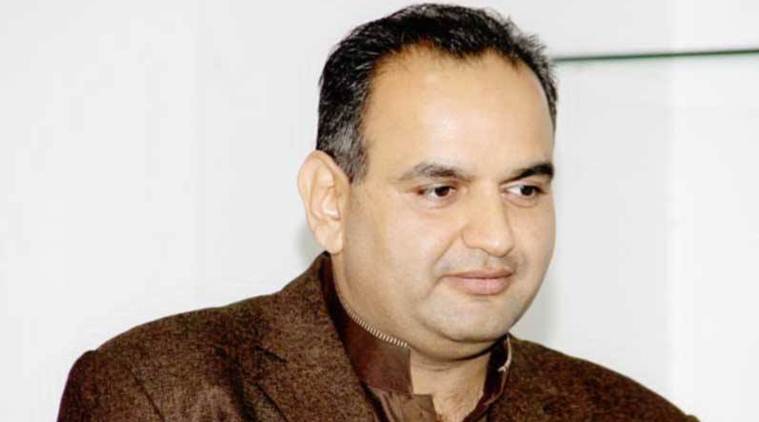A Hindu in Pakistan
Dr Ramesh Kumar Vankwani is a high-profile leader of the Hindus of Pakistan and is a member of the National Assembly on a seat reserved for the minorities.

Dr Ramesh Kumar Vankwani is a high-profile leader of the Hindus of Pakistan and is a member of the National Assembly on a seat reserved for the minorities. Struggling for the rights of the most downtrodden community in Pakistan, he has been a member of the Sindh Assembly in the past, protesting his constituency’s plight in Tharparkar. Appearing on Geo TV on November 26, 2018, Vankwani repeated his plaint that Hindus were being subjected to forced conversion in Sindh where Pakistan’s second largest minority — at 2.4 million — after Christians, lives. Because of the state’s neglect, annually 5,000 Hindus are forced to migrate to India. Today, he represents the ruling Pakistan Tehreek-e-Insaf (PTI) of Prime Minister Imran Khan.
Vankwani is a qualified surgeon and is clearly one of the most capable politicians of Pakistan. Talking to TV anchor Saleem Safi, he expressed satisfaction at the recent decision taken by the Supreme Court of Pakistan in the scandalous “blasphemy” case in which a Christian girl, Asia Bibi, was made to rot in jail for eight years. The magistracy simply melted away in the face of extremists baying in the streets for her blood; and the High Court too avoided handing down justice till — eight years later — the apex court let her walk.
The Hindus of Sindh are special because the “Rig Veda, the oldest Hindu text, is believed to have been composed in the Punjab region of modern-day Pakistan, on the banks of the Indus River around 1500 BCE”. They left behind evacuee property which is today controlled by an Evacuee Trust Property Board, always headed by a Muslim, while most of the evacuee property held by it after 1947 belongs to the Hindu community which dominated the cities of Sindh before partition. Vankwani asserted that in India such a trust was always headed by a Muslim, but in Pakistan the Trust, headed by a Muslim, was shot through with corruption. He claimed that if it was handed over to him he would recover billions of rupees from “lost” properties and expose the politicians who had exploited the institution.
Asif Nawaz writing in The Friday Times (24 Jun 2016) explained the origins of the earliest-in-history mandir of Katas Raj in Chakwal: “According to the Mahabharata, the legendary Pandavas spent a good four years of their total exile in the present Katas region; not only living in this peaceful abode but also leaving their mark on the place in the form of temples and relics.”
There is a most touching story behind its origin: “After the death of his wife Sati, Lord Shiva cried so inconsolably that his tears formed a pond that came to be known as the Katas Raj pond. Around this pond, temples were built dedicated to the Hindu deities Shiva, Ram and Hanuman. It is the modern-day Lahore-Islamabad motorway that leads tourists to this sacred site. Situated in Punjab’s Salt Range near Kallar Kahar (at an altitude of 2,000 feet), the Katas Raj Temple complex is considered the second-most sacred shrine in Hinduism.”
Vankwani pointed out that it was finally the Supreme Court that took note of the destruction of the famous Katas Raj pond and shut down the offending cement factories. He recommended that a Hindu should be put in charge of the Evacuee Trust Property Board, established in 1960, which administers evacuee properties and shrines of Hindus and Sikhs. He also said if he held charge of the Board he will save billions of rupees for the state without allowing the properties to be snatched by powerful people. And he expressed confidence in Prime Minister Khan’s fearlessness in the face of traditional political odds. He thought forced conversion through the kidnapping of Hindu girls in Sindh had to be stopped by the new government that had opened the Kartarpur corridor for the Sikh yatris.







































No hay comentarios:
Publicar un comentario